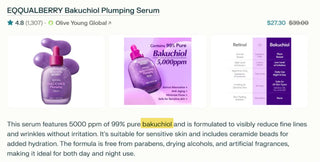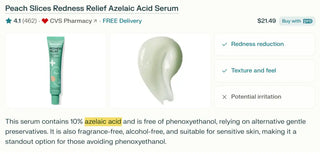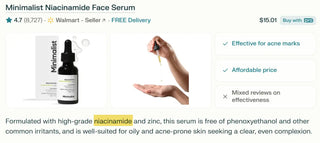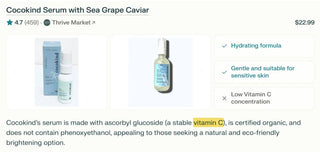FREE GUIDE
Pregnancy-Safe Antiwrinkle Ingredients
Hey mama! 👋 Here’s the guide I promised—my go-to list of pregnancy-safe antiwrinkle ingredients 🧴✨
This isn’t about fear—it’s about feeling empowered to make choices that honor your changing body and delicate skin. You deserve to feel safe, seen, and supported in every product you use. 💛
And when labels get confusing (because let’s be real—they do), just remember:
Flip the label. Know what’s inside. Choose what’s right for you. 💌
1. Bakuchiol
- What it is: A plant-based alternative to retinol, derived from the Psoralea corylifolia plant.
- Used for: Smoothing fine lines, boosting collagen, evening skin tone—similar benefits to retinol, but gentler.
Why it’s safe: Unlike retinoids, bakuchiol doesn’t trigger cell turnover in a way that could pose risks during pregnancy. It’s non-toxic and non-teratogenic.
2. Azelaic Acid
- What it is: A naturally occurring acid found in grains like barley and rye.
- Used for: Treating acne, rosacea, and melasma. It reduces inflammation and helps fade dark spots.
Why it’s safe: It’s FDA Category B for pregnancy, meaning it hasn’t shown harm in animal studies and is often prescribed by dermatologists for melasma during pregnancy.
3. Niacinamide (Vitamin B3)
- What it is: A form of Vitamin B3, known for its calming and restorative properties.
- Used for: Reducing redness, controlling oil, improving skin texture, and brightening dull skin.
Why it’s safe: It's non-irritating, non-toxic, and not absorbed deeply into the skin—making it a low-risk ingredient during pregnancy.
4. Vitamin C (Ascorbic Acid or derivatives)
- What it is: A potent antioxidant that protects skin from environmental damage.
- Used for: Brightening, fading hyperpigmentation, and supporting collagen production.
Why it’s safe: Topical Vitamin C doesn’t penetrate deeply enough to affect fetal development, and it’s widely considered safe during pregnancy.
⚠️ Final Note & Pregnancy Disclaimer:
While these ingredients are generally considered safe during pregnancy, every skin is unique—and pregnancy hormones can make your skin more reactive and prone to hyperpigmentation. Even safe ingredients might cause irritation or unexpected changes.
If you choose to use any of these ingredients during pregnancy, make sure you're protecting your skin aggressively. Wear sunscreen, reapply it every hour, and stay shaded with a wide-brim hat and sunglasses. Avoid direct sunlight whenever possible.
To help support this, check out our Faith & Sage’s mineral sunscreen stick—it’s made with only mineral filters and plant-based ingredients to protect and soothe delicate, reactive skin.
Always:
- Patch test before using a new product
- Avoid harsh formulations or combining too many actives
- When in doubt, consult your dermatologist or OB-GYN
Lastly, every body is different. Use with care, listen to your skin, and always consult your doctor if you’re unsure.
Pregnancy is a powerful transition—treat your skin with care and compassion. 💛
✨My Personal Favorite For Each Category ✨




Want to learn more?
Follow me on Instagram @thewellnessformulator for more label tips, baby-safe skincare insights, and behind-the-scenes breakdowns of what’s really inside the products we use every day. 💛
